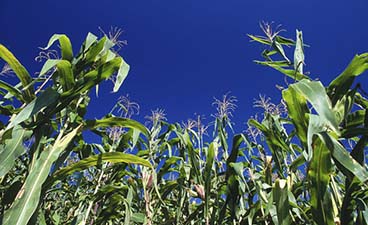
Organic production proves profitable despite smaller sizes and inflation effects in Upper Midwest

Minnesota and Wisconsin (MN-WI) certified organic dairy and crop farms reported strong profits in 2020-2021 despite challenges by individual farm type. “Organic crop farms managed considerably less land on average compared to their conventional counterparts,” reports Gigi DiGiacomo, research fellow in the Department of Applied Economics at the University of Minnesota. “This is good news for producers seeking alternative growth strategies amid rising agricultural land costs and increasing interest rates.” While both organic row crop and dairy farms performed well in smaller sizes compared to their conventional counterparts, rising inflation in 2021 also created additional market pressure for organic farmers, especially for organic dairy farms with increased spending on feed costs.
Organic row crop (majority corn and soybeans) farmers in MN and WI had an operating profit margin of almost 33% with a median net farm income of $105,379 for the 2020 and 2021 two-year average. The MN-WI organic row crop farms are, on average, smaller in comparison to their conventional counterparts and considered “midsize” according to USDA Economic Research Service farm typology. (A farm is classified as “midsize” if gross cash farm income is $350,000 - $999,999.)

MN-WI organic row crop producers managed 325 acres per farm on average and generated $324.24 per acre in median net farm income in 2020 and 2021. Conventional row crop farms, by comparison, were more than three times as large; averaging 1,053 acres per farm while netting $144.65 per acre in median farm income. “The 2020-2021 data are very promising for small-to-mid-size farms,” says Joleen Hadrich, professor in the Department of Applied Economics at the University of Minnesota (UMN).
Farm profits were positive for organic dairies despite a 10% increase in direct and overhead expenses from 2020 to 2021. Feed accounted for the largest share of increased costs due to the significant spike in organic grain prices. “The increase in organic grain prices, which was of benefit to organic crop farmers, ended up hurting organic dairy producers,” reports Gigi DiGiacomo. The average cost of feed increased 8% from $2,105.20/cow in 2020 to $2,280.65/cow in 2021. In addition to increased costs, organic dairy farms experienced a milk price drop of 6% from $29.41/cwt in 2020 to $28.50/cwt on average in 2021. The organic milk price/feed margin averaged $15.00/cwt for 2020 compared to $15.07/cwt for 2021.
Organic dairies were able to absorb the added costs amid reduced milk price premiums due to improvements in productivity. Average milk production increased 15% from 14,686 pounds/cow in 2020 to 16,897 pounds/cow in 2021. “Increasing production for organic dairy has shown to help improve profits amidst these cost challenges,” says Joleen Hadrich. “It’ll be worth carefully examining if this trend in productivity continues in 2022.”
Data for MN-WI organic crop farms is available from a new University of Minnesota report, 2020-2021 Organic Farm Performance in the Upper Midwest: Whole Farm and Enterprise Reports. The report includes whole farm and enterprise returns as well as traditional financial indicators for organic and organic transition row crops and dairy in Minnesota and Wisconsin. Data for the report comes from the Farm Business Management (FBM) programs in each state as part of a UMN-led benchmarking project in collaboration with the Minnesota State Agricultural Centers of Excellence and the UMN Center for Farm Financial Management. The project is funded by the USDA Organic Research and Extension Initiative Program (2019-51300-30484). Find more information on organic reports from previous years.
Scholarships are available through the project to partially off-set FBM programming and tuition costs for certified and transitioning organic farmers. Learn more about the organic benchmarking cost share program and apply for scholarships online. Contact Gigi DiGiacomo (gigid@umn.edu) with any questions.





